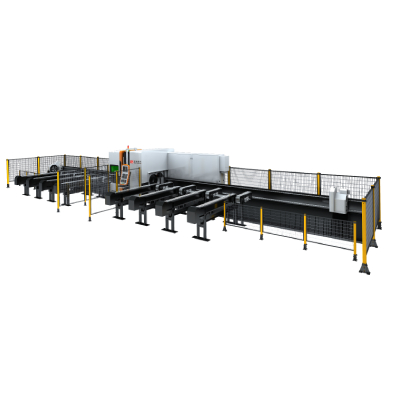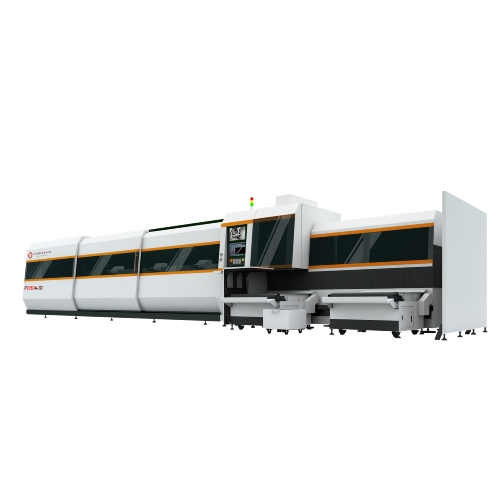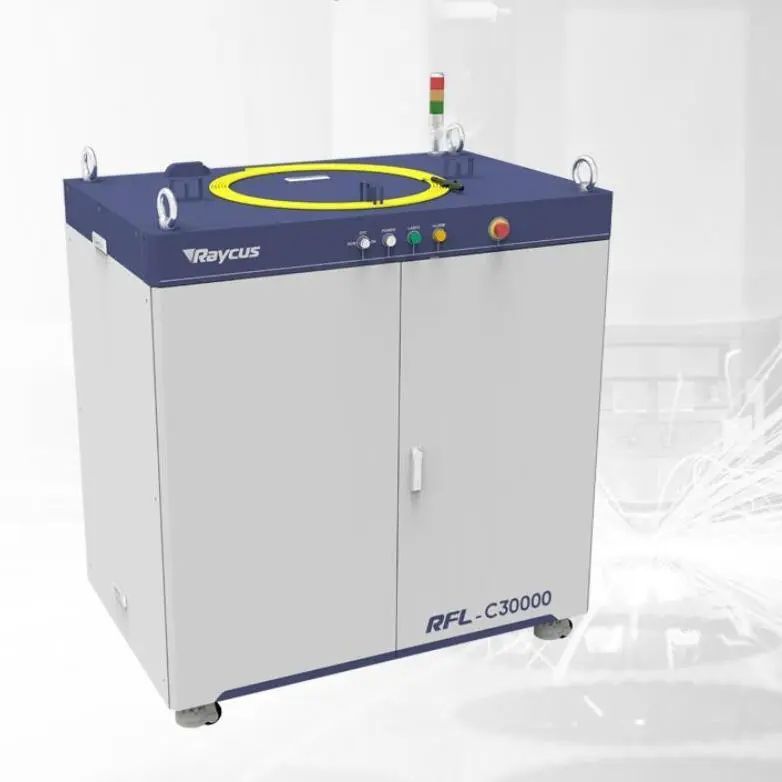In the fast-paced world of manufacturing, precision, efficiency, and cost-effectiveness are vital for maintaining a competitive edge. Steel plate cutting machines have become an essential tool in numerous industries, including construction, automotive, aerospace, and shipbuilding. These advanced machinery systems offer remarkable capabilities in shaping and fabricating steel plates with unparalleled precision, thereby revolutionizing traditional cutting methods. This article explores the myriad benefits and applications of steel plate cutting machines, shedding light on why they are becoming indispensable in modern manufacturing.
What Are Steel Plate Cutting Machines?
Steel plate cutting machines are specialized industrial machines designed for precisely cutting and shaping metal plates, primarily made of steel, into various sizes and forms. These machines utilize different technologies, including plasma cutting, laser cutting, and waterjet cutting, to achieve high levels of accuracy and efficiency. Each cutting method has its advantages, allowing manufacturers to select the best technology for their specific applications.
Benefits of Steel Plate Cutting Machines
1. **Precision and Accuracy**: One of the most critical benefits of using a steel plate cutting machine is the high level of precision it offers. Modern machines can cut steel plates to micron-level tolerances, ensuring that components fit perfectly during the assembly process. This accuracy minimizes the wastage of materials and reduces the need for rework, ultimately leading to greater cost savings.
2. **Speed and Efficiency**: The speed at which steel plate cutting machines operate allows for increased production rates. Whether for bulk orders or custom jobs, these machines can cut large volumes of steel plates in a fraction of the time it would take using traditional methods. This efficiency is crucial for meeting tight deadlines and keeping production lines operating smoothly.
3. **Versatility**: Steel plate cutting machines can handle various thicknesses and types of steel, from mild steel to high-strength alloys. They can also be programmed to cut intricate shapes, be it simple circles and squares or complex designs needed for specific projects. This versatility makes them suitable for countless applications in diverse industries.

Understanding the Benefits and Applications of Steel Plate Cutting Machines in Modern Manufacturing Industries
4. **Reduced Labor Costs**: By automating the cutting process, steel plate cutting machines reduce the need for large teams of skilled laborers. Operators can program the machines to perform tasks autonomously, which minimizes labor costs and shortens the time needed for training. This automation also helps to decrease the likelihood of human error during cutting.

Understanding the Benefits and Applications of Steel Plate Cutting Machines in Modern Manufacturing Industries
5. **Improved Safety**: Advanced steel plate cutting machines are designed with safety features that protect operators from potential hazards associated with metal cutting. Many machines come equipped with automatic shut-off systems, protective enclosures, and monitoring systems to ensure safe operation. This emphasis on safety helps to create a safer work environment and reduces the risk of accidents.
Applications of Steel Plate Cutting Machines
1. **Construction**: In the construction industry, steel plate cutting machines are essential for creating structural components such as beams, columns, and plates that form the backbone of buildings. Accurate cutting of steel parts ensures the integrity and stability of these structures.
2. **Automotive**: The automotive industry benefits significantly from steel plate cutting machines in manufacturing components like chassis, frames, and body panels. These machines enable manufacturers to produce lightweight, strong parts that enhance vehicle performance and fuel efficiency.
3. **Aerospace**: The aerospace industry requires the highest level of precision, especially when it comes to engine components and structural parts. Steel plate cutting machines can produce complex geometries and ultra-tight tolerances necessary for safety and performance in flight.
4. **Shipbuilding**: In shipbuilding, steel plate cutting machines allow for the efficient fabrication of hulls and other critical structures. The adaptability of these machines to handle various steel types and thicknesses is vital for meeting the diverse needs of the maritime industry.

Understanding the Benefits and Applications of Steel Plate Cutting Machines in Modern Manufacturing Industries
5. **Manufacturing Services**: Many manufacturers offer custom steel cutting services using steel plate cutting machines, allowing clients to specify their designs and dimensions. This service flexibility attracts industries with unique fabrication needs, such as custom machinery and equipment production.
Conclusion
As the demand for precision and efficiency continues to rise in today’s competitive manufacturing landscape, steel plate cutting machines have emerged as a beacon of innovation. Through their diverse applications, remarkable benefits, and advanced technologies, these machines are transforming how industries approach metalworking tasks. Understanding the capabilities and advantages of steel plate cutting machines is essential for manufacturers seeking to enhance their operations and deliver superior products. The future of manufacturing is no doubt intertwined with the precision and capabilities of steel plate cutting technology, promising continued innovations that will shape the industry for years to come. Laser Cutter For Mild Steel



